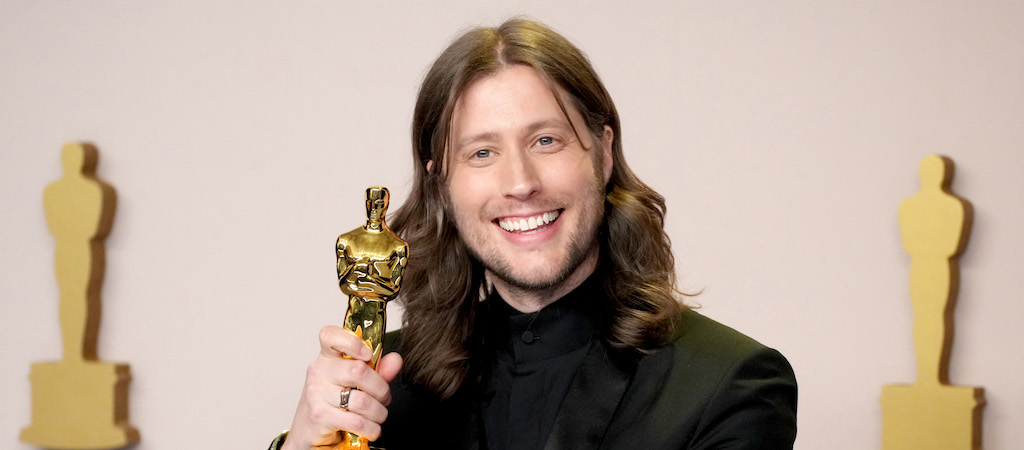
In a relatively short time, 39-year-old Swedish composer Ludwig Göransson has become a favorite of both hip-hop fans and geek fandoms online thanks to his expansive oeuvre. Since 2011, he’s garnered attention from the former for his production work alongside Childish Gambino, Kendrick Lamar, and more. Meanwhile, fans of sci-fi epics and superhero movies know him for his contributions to scores for massive multimedia franchises like the Marvel Cinematic Universe and Star Wars.
However, there’s one group that isn’t too happy with him this week: Gamers. A search for his name on social media outlets today would surface a roiling debate over Göransson’s comments on Sunday during his Oscars acceptance speech. After receiving the award for Best Original Score for Oppenhaimer (his second win after receiving one in 2018 for Black Panther), he thanked his parents “for giving me guitars and drum machines instead of video games.”
Last night, 39-year-old composer Ludwig Göransson won his second Academy Award for his score to ‘Oppenheimer’. In a heartfelt speech, he thanked his parents for giving him his foundation in music. pic.twitter.com/hVSDqp0gEw
— Classic FM (@ClassicFM) March 11, 2024
This has obviously riled the gaming community, who view themselves as oft-put-upon despite the gaming industry’s record worldwide profits and popularity. There’s probably a whole 2000-word article to be written about why they feel this way, but in general, they seem salty that Göransson appeared to deride their hobby in his thanks to his parents. Since I started off talking about hip-hop, there’s no better example to use here than the homie Mega Ran, a stalwart of the so-called “nerdcore” subgenre of rap, who called the comments “an unnecessary bit of shade.”
Over on Twitter, the discourse has gotten heated, with many gamers rightly pointing out that video games have featured or inspired some of the most recognizable music in pop culture, from the Mario theme to the chiptune subgenre that reproduces the 8- and 16-bit sounds of millennial nostalgia for original works.
No offense, but @David_Wise has created some of the greatest pieces of music ever written for….GASP….
Videogames!
pic.twitter.com/9ia33ocrLw
— Tricky Mick.ETCFrogB (@TrickyMickMinin) March 12, 2024
Hey @ludwiggoransson you couldn’t hold a candle to this masterpiece https://t.co/JGtlkeVB9h pic.twitter.com/WsYBVOrboR
— Almond
(@OnlineAlmond) March 12, 2024
Funny, I had videogames AND keyboards AND drum machines.
When I accepted my lifetime achievement award for making videogames, I didn’t realize I was supposed to take a cheap shot at something I clearly didn’t understand #LudwigGoransson https://t.co/Q7LE6HT54o
— Tony Barnes (@Twitchfactor) March 12, 2024
Least favorite parts of the Oscars:
Ludwig Goransson implying video games are not art
Ariana Grande & Al Pacino skipping naming nominees
Jimmy Kimmel implying animation is for kids
Jimmy Kimmel making John Cena present nude
Jimmy Kimmel taking a jab at Miyazaki for being absent— hector (@axilatl) March 12, 2024
Of course, there’s no speaking for Mr. Göransson either way, but whether he was legitimately putting games down or just joking about his parents’ refusal to let him have something many, many other ’90s kids begged their parents to have (many to no avail), one positive to take away from this whole kerfuffle is an appreciation of the wide range of musical styles in video game music. Maybe as a mea culpa, he can compose the music for a triple-A game or two, just to prove he can.


